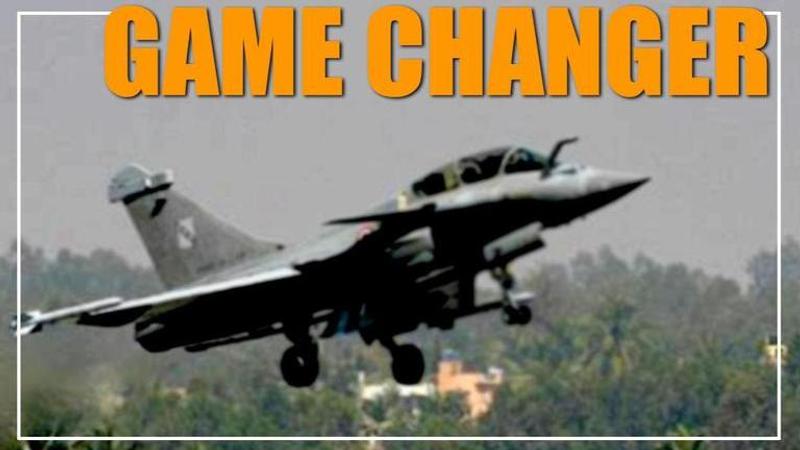Published 11:51 IST, October 8th 2019
IAF to get first Rafale: Here is what this fighter jet is capable of
Known for its speed, weapon holding capacity and attack capability, the Rafale fighter jets will give a big boost to the Indian Air Force's defence capability.

Advertisement
Defence Minister Rajnath Singh is set to receive the first of the 36 Rafale fighter jets at a facility of Dassault Aviation in Bordeaux, France on Tuesday. This is set to give a big boost to the Indian Air Force (IAF). At present, India has fighter jets such as Sukhoi Su-30MKI, MiG 29, Mirage-2000 and the indigenously built Tejas. The Rafale is a Medium Multi-Role Combat Aircraft (MMRCA), manufactured and designed by Dassault Aviation. It is known for its speed, weapon holding capacity and attack capability. Apart from India, countries like Qatar and Egypt already have Rafale jets.
Importance in the Indian context
The Rafale is powered by two SNECMA M88 engines, which helps it attain a high speed of 1,912 km per hour and a range of more than 3,700 km. It also has a Martin-Baker Mark 16F ‘zero-zero’ ejection seat, capable of operating at zero speed and altitude. Equipped with the AESA radar, SPECTRA Electronic Warfare System and IRST system, Rafale is categorized as a 4.5 generation aircraft. This is invaluable as the IAF currently has only third and fourth generation fighter jets. However, its biggest advantage is its capability of delivering nuclear weapons.
Additionally, the Meteor is a game-changing missile on-board. This implies that an Indian Rafale jet will be able to shoot down an enemy aircraft over 100 km away without even crossing the air space. Weighing 1,300 kg, another key element is the Scalp long-range air-to-ground stand-off cruise missile, that can strike 600 km into the enemy territory. Moreover, it is expected that the BrahMos NG missiles would be integrated with the Rafale. The Israeli Litening pod will improve the senor commonality across the IAF inventory. Some of the other India-specific modifications include radar warning receivers, low band jammers, 10-hour flight data recording, infra-red search and tracking systems.
Proven ability
The Rafale has proved to be extremely vital in many conflicts over the last 13 years. The French Air Force was involved in multiple operations in Afghanistan and Libya, where the Rafale fighter jets were used. Similarly, they played a key role in Mali, helping destroy enemy infrastructure. By remaining airborne for 9 hours and 35 minutes in one such operation conducted by France, the ability of the Rafale aircraft clearly comes to the fore. Most recently, it was utilized in the peace-keeping operations in the Central African Republic.
10:00 IST, October 8th 2019




